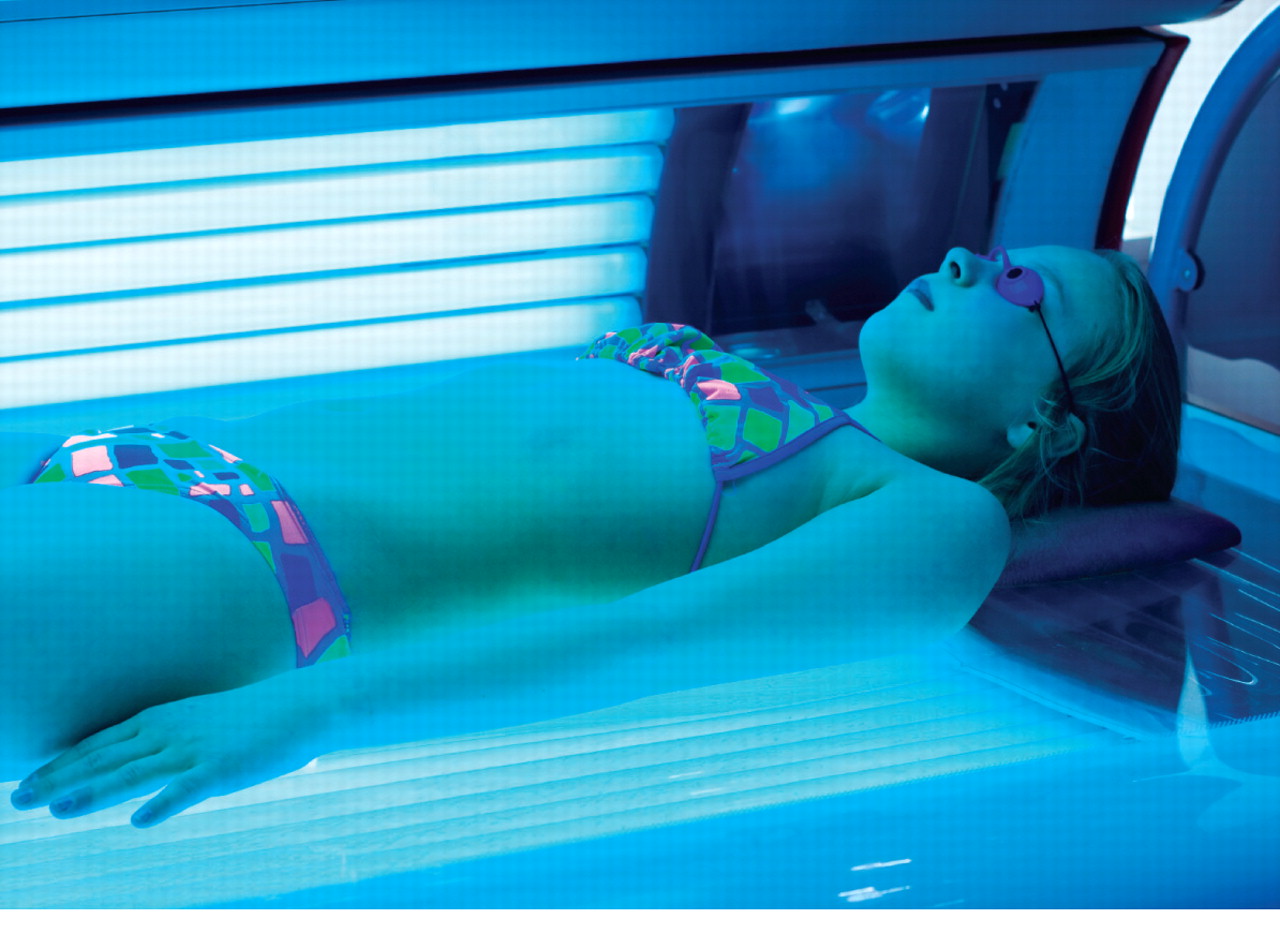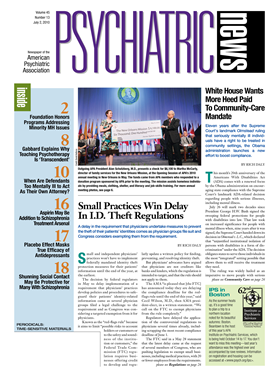Oh, to be young, sleek, supple, sexy, and tanned! Well, maybe not the last one of these.
The American Academy of Dermatology has issued a warning on the Internet about indoor tanning, pointing out that it has been linked with skin cancer, including the most deadly form, melanoma.
Moreover, a number of college students who pursue indoor tanning may be addicted to it, a study published in the April Archives of General Dermatolog y suggests.
The study was conducted by Catherine Mosher, Ph.D., a postdoctoral researcher at Memorial Sloan-Kettering Cancer Center in New York City, and Sharon Danoff-Burg, Ph.D., an associate professor of psychology at the State University of New York at Albany.
The researchers recruited 421 students at a large state university in the northeastern United States to take part in their study. Subjects anonymously completed a questionnaire reporting their demographic information and whether they had ever tanned indoors. The researchers also had them fill out the Beck Anxiety Inventory and the Beck Depression Inventory to assess symptoms of anxiety and depression, the Core Alcohol and Drug Survey to measure substance use, and two questionnaires to determine whether they appeared to be addicted to indoor tanning.
One of the questionnaires, called the CAGE questionnaire, had been adapted from one used to screen for alcoholism. One of the questions was, “Do you try to cut down on the time you spend in tanning beds or booths, but find yourself still tanning?” The other questionnaire had been adapted from DSM-IV-TR criteria for substance-related disorders. Two of the questions it asked were, “How many days a week do you spend in tanning beds or booths?” and “Do you think you need to spend more and more time in tanning beds or booths to maintain your perfect tan?”
Of the 421 subjects, 237 had used indoor tanning facilities. Data were assessed for 229 subjects after eight of them were omitted from subsequent analyses because of missing information.
Of these 229 subjects, 70 (31 percent) met CAGE criteria for addiction to indoor tanning, and 90 (39 percent) met addiction-to-tanning criteria adapted from DSM-IV-TR criteria for substance-related disorders.
“The proportion of respondents who were classified as addicted to indoor tanning on the two measures surprised me,” Mosher told Psychiatric News.
Furthermore, 42 percent of the 50 indoor tanners who appeared to be addicted to the process according to both criteria reported use of two or more substances (excluding alcohol) during the prior month, compared with 17 percent of subjects who tanned indoors and who appeared not to be addicted to tanning. In addition, only 16 percent of those who had never tanned indoors reported use of two or more substances other than alcohol. Other studies have also found a link between indoor tanning and substance use. “Tanning and drug use may be reinforced by peer-group norms,” the researchers suggested.
Finally, those 50 indoor tanners who seemed to be addicted to that activity according to both CAGE and DSM-IV criteria had twice as many anxiety and depressive symptoms as did other indoor tanners and those who had never tanned indoors. “Anxiety and depression are often comorbid with substance dependence, and the present findings suggest that affective disturbance may also be comorbid with dependence on indoor tanning,” the researchers observed.
“This thought-provoking study highlights the integral connection between skin and psyche,” Eva Ritvo, M.D., a Miami psychiatrist with a special interest in the health aspects of tanning, told Psychiatric News. “The study revealed a high incidence of possible mental health issues, such as anxiety disorders and substance abuse, in students who frequently use indoor tanning. This finding emphasizes the fact that more sophisticated methods of diagnosis and treatment must be considered to alter the use of tanning beds. Underlying or associated mental health issues must also be addressed to successfully reduce this high-risk behavior.”
Some earlier studies have also “demonstrated the addiction potential of tanning,” Caroline Koblenzer, M.D., a clinical professor of dermatology at the University of Pennsylvania, pointed out in an interview with Psychiatric News. “That tanning has addiction potential is certainly understandable, since UV light on the skin affects the opioid pathways.”
In other words, UV light from tanning may lead to addiction by activating the opioid receptors that are known to be present in skin, Robin Hornung, M.D., an Everett, Wash., dermatologist, proposed in the April Expert Review of Dermatology. In fact, a small pilot study reported in the April 2006 Journal of the American Academy of Dermatology supports this hypothesis. It found that the opioid antagonist natrexone induced withdrawal symptoms, such as nausea and jitteriness, in frequent tanners but not in infrequent ones.
The study was funded by the National Cancer Institute.

